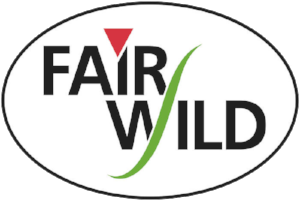KCNC pays FairWild Standard project site in Viet Nam a visit
Viet Nam, December 2013—A 16-person delegation from Japan’s Keidanren Committee on Nature Conservation (KCNC) have undertaken a field visit to a community-based project in northern Viet Nam, to see for themselves how local people are directly benefitting from the application of the FairWild principles of sustainable harvesting and equitable trade to wild plant harvesting.
Each year KCNC arranges a visit for representatives from Japanese donor corporations to selected project sites in Asia, to enable participants to gain a better understanding of how their generosity is supporting on-the-ground conservation initiatives.
“It happens that most of our previous missions visited projects which focused primarily on protecting nature, for example through conservation of rare species and restoration of species habitats”, said Mr Kuniyasu Matsumoto, the Deputy Executive Director of KCNC.
“However, this year we wanted to bring human livelihoods into focus. We wanted to learn how NGOs work together with local communities to address complex conservation issues that are tightly linked to livelihood issues.”
KCNC is a funding body run by Japan’s Business Federation, Keidanren, and currently supports the TRAFFIC-led project on sustainable harvesting of wild medicinal and aromatic plants (MAPs) in Nam Xuan Lac Species and Habitat Conservation Area, Cho Don District, Bac Kan Province, northern Viet Nam through its biodiversity conservation fund, Keidanren Nature Conservation Fund (KNCF).
TRAFFIC’s project site was chosen for the visit because of its unique approach in applying sustainable harvesting and equitable trade principles as a means to improve the livelihoods of ethnic minority collectors whose income heavily rely on forest resources, particularly MAPs.
“Japan has lost much of its nature and unique biodiversity in the rush for industrial development,” said Mr Masatoshi Sato, Chairman of KCNC.
“We consider that it is now our role to support conservation efforts in other Asian countries so that places like Bac Kan can take a different course of development that is sustainable and in harmony with nature.”
During the KCNC visit, TRAFFIC staff were able to demonstrate how close collaboration with various local stakeholders at the grass-root level was leading towards the shared goal of empowering local communities in terms of management of their MAP resources and in increasing their income.
This is being achieved through application of the FairWild Standard and Principles to establish sustainable wild-harvesting collection practices right through to introducing a fair and equitable benefit-sharing mechanism along the entire trade chain.
“Our aim is to create a model of sustainable harvest and fair trading through applying the FairWild principles that will ultimately empower local communities so that they will be able to benefit fully from managing their own resources and establishing fair trade relationships,” said Mai Nguyen, Forest Trade Officer with TRAFFIC’s Greater Mekong Programme.
The multi-year project has made significant progress working with local collectors from seven villages in Xuan Lac and Ban Thi Communes. Previously the project received funding from the Critical Ecosystem Partnership Fund (CEPF), between June 2011 and July 2013.
In 2013-2014, KNCF is supporting three projects based on use of the FairWild Standard; in Viet Nam, India and Japan.
